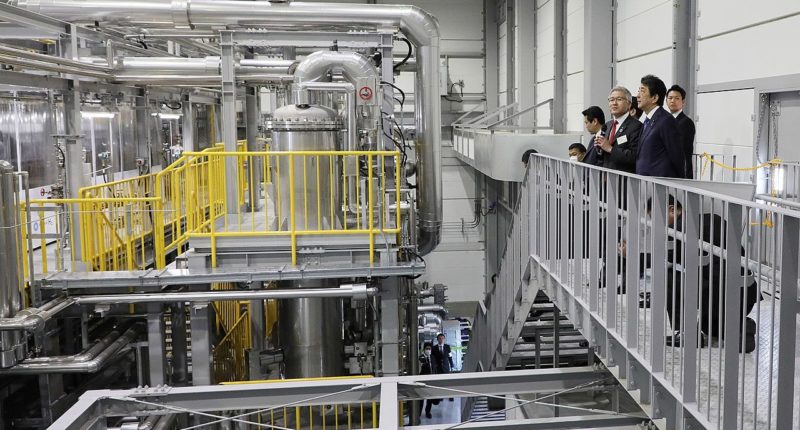France’s EDF Group – Électricité de France – and Rosatom, Russia’s State Nuclear Energy Corporation, have agreed to a joint hydrogen programme to develop the technology as both nation’s work towards implementing the Paris Agreement.
Russia has long plugged its nuclear industry as capable of developing methods of hydrogen production by way of the electrolysis and steam conversion of methane using CO2 capture, and just two years ago the EDF Group put together ‘Hynamics’ – a department charged with establishing the hydrogen industry in France.
The first deputy director general of Rosatom for international business, said Rosatom is now “systematically” working on carbon-free generation processes, without limiting itself to it’s primary field of nuclear power.
“We are ready to become one of the key players in the emerging chains of world production, storage, transportation and consumption of hydrogen,” he said, adding “In the context of global decarbonisation objectives, hydrogen energy has a really great potential for international cooperation. I am confident that our cooperation with EDF will create a powerful synergistic effect that will allow us to successfully implement joint hydrogen projects not only in Russia and France, but all over the world.”
The director of international development at EDF, Beatrince Buffon meanwhile said that “(The) essence of our company’s work is to create a zero-carbon energy future that will protect the planet and contribute to social and economic prosperity through electricity and innovative services and solutions. Low-carbon hydrogen production is one of the main ways to achieve energy transition. The agreement with Rosatom, our historic partner in Russia and one of the key players in the field of ‘clean’ hydrogen, clearly demonstrates EDF’s commitment to developing a new energy model with the lowest CO2 emissions in all countries and regions where it is present.”
Whilst not currently in wide use, the promotion of hydrogen use in the coming years and decades is already on the horizon with nations and leading energy companies around the world eyeing methods to establish footholds in a form of energy generation still in its infancy, but with huge potential to help ease greenhouse gas emissions by the end of the century.












Comments are closed.